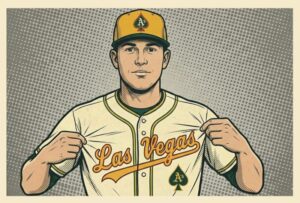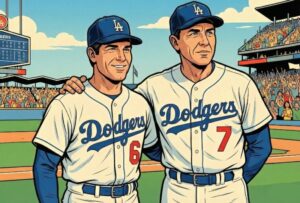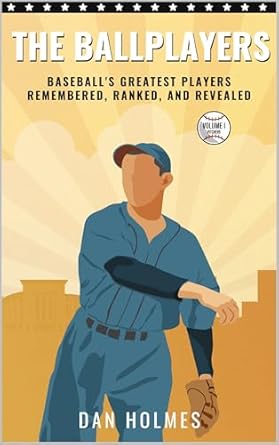Driven by a profound love of history and sports, my curious mind has always been captivated by the rise of America’s favorite pastime, baseball.
Explore the depths of history to discover the nascent beginnings of this cherished activity, which may be traced back to the records of ancient societies, where simple forms of baseball and ball games were popular goldenslot. This section aims to shine light on baseball’s early days by taking the viewer on a journey through the game’s evolution from ancient hobbies to the contemporary one we know today.
Early History of Baseball
We travel back in time to historical periods when societies all around the world participated in a wide range of bat-and-ball games that established the fundamentals of modern baseball. Somewhere in the Egyptian desert, the sound of a game called “seker-hemat” echoed. It involved hitting a ball with a club, just like baseball. Similarly, in the Hellenic and Roman spheres, games known as “lygos” or “paganica” entailed striking a sphere with a bat. These early forms of bat-and-ball games were the furnace in which baseball’s development took place.
When we travel back in time to the 18th century, we come across mentions of a game called “rounders” that was played in the lush England of that era. It was eerily similar to contemporary baseball in that it captured the movement of the ball and around bases, fitting in with the fundamental principles of the game. The essence of rounders was carried by waves of English immigrants across the Atlantic to the emerging American colonies, where it eventually evolved into the beloved game that is baseball.
During the Civil War era, baseball’s popularity experienced an unparalleled upsurge as troops from both sides enjoyed intense games as a way to unwind from the demands of combat. The extensive publicity and the resulting friendships greatly aided in the sport’s growing popularity. Structured baseball leagues started to emerge as the 19th century unfolded, providing the foundation for the rules’ codification and solidifying baseball’s standing as a popular national pastime.
The Evolution of Baseball Rules and Equipment
The regulations and accessories related to baseball have evolved in a way that is similar to how the sport has changed over time. Baseball followed ill-defined rules in its infancy, with subtleties that frequently differed from place to place. But as the sport gained popularity, the need for standardization became apparent and official criteria were created.
A turning point in baseball history occurred in 1845 with the adoption of the Knickerbocker Rules. These rules, which were developed by the New York Knickerbockers Baseball Club, gave baseball important features like foul lines, the three-strike rule, and the idea of innings, giving the game a disciplined and organized nature.
The equipment used in baseball evolved along with the game. The early baseballs were meticulously made by hand, with a core wrapped in leather, wrapped in yarn, and surrounded by strings. The late 1850s saw the introduction of the figure-eight stitching pattern, which revolutionized the ball’s longevity and flight and established a standard that is still in place today. At the same time, bats evolved from their simple wooden tools to become intricately designed, standardized versions that have completely changed the way the game is played.
Important People in the Story of Baseball
The legends of baseball’s past who have left their marks on the history of the game are deeply woven into the fabric of the game’s story. Alexander Cartwright takes the lead among them and is hailed as the “Father of Modern Baseball.” He has become a revered figure in baseball history because of his contribution to the formalization of the sport and the creation of the Knickerbocker Rules.
Jackie Robinson is another iconic figure in baseball history. His historic 1947 entry into Major League Baseball broke down racial barriers and helped professional sports become integrated. In addition to completely changing baseball, Robinson’s steadfast bravery and extraordinary physical ability ignited a larger movement supporting equality and civil rights.
Within baseball management, Branch Rickey’s name carries a lot of weight. His creative thinking and keen sense of talent sparked the growth of the farm system, forever changing the professional baseball landscape of player acquisition and development. Together with a host of other visionary visionaries, they have irrevocably altered baseball’s history and left a lasting legacy that reverberates through the ages.
The American Tapestry’s Pervasiveness of Baseball
Throughout the 19th century, baseball spread throughout the United States and captured the interest of people from all social classes. Its charm cut beyond the boundaries of socioeconomic classes, attracting fans from busy urban centers to sleepy rural villages. Local and regional leagues grew in popularity, giving players a platform to demonstrate their skills and foster a feeling of community pride.
Baseball clubs—amateur and semi-professional teams—began to spring up all across the American landscape in the years following the Civil War. The game’s intense rivalry and sense of community was crucial in creating the fabric of American society by encouraging harmony and a sense of inclusion.
The introduction of baseball diamonds and specially constructed stadiums became emblematic of the sport’s growing power as it continued its unstoppable rise. These sacred grounds were used as venues for athletic feats as well as gathering places for enthusiasts to enjoy the addictive excitement of the game as a group. By doing this, they maintained baseball’s status as the national pastime of the United States.
Major League Baseball’s (MLB) Origins
The National League was founded in 1876, marking the formalization of professional baseball during the last days of the 19th century. This momentous occasion marked the beginning of Major League Baseball (MLB) in its modern incarnation and set the stage for a systematic and structured approach to the pinnacles of the sport.
Auxiliary leagues like the American League arose as baseball’s popularity continued its explosive rise, eventually coming together to form the contemporary MLB. Professional baseball’s reputation and appeal were further enhanced with the addition of clubs from other locations and the creation of the World Series, a championship series.
Famous rivalries and renowned players have shaped MLB’s development trajectory, captivating fans’ attention and leaving enduring memories in the annals of sports history. The MLB’s long history bears witness to baseball’s enduring appeal and cultural relevance in American society.
The Cultural Imprint of Baseball
Baseball is more than just a sport; it is ingrained in American literature, art, and entertainment, adding to the rich tapestry of American culture. Many works of fiction and non-fiction have drawn inspiration from baseball’s everlasting appeal in an attempt to capture the spirit of the sport’s reverberation in the minds of Americans.
The linguistic contributions made by baseball to culture are likewise evident; expressions like “hitting it out of the park,” “covering all the bases,” and “stepping up to the plate” have become ingrained in popular culture. These linguistic relics testify to baseball’s ubiquitous influence on the American language.
Furthermore, the sport’s ongoing appeal in popular culture is demonstrated by how it is portrayed in movies, music, and other media, where fans are strongly moved by themes of tenacity, cooperation, and success in the face of adversity. Baseball’s enduring allure as a symbol of the essence of the American spirit has cemented its place in popular culture.
Baseball’s Enduring Appeal
The fact that baseball continues to be popular despite the constantly changing sports and entertainment scenes is a clear indication of its everlasting appeal. Beyond generational divides, the sport’s inherent ability to enthrall and inspire evokes a deep sense of nostalgia while keeping sensitive to modern sensibilities.
Baseball’s inherent appeal stems from its capacity to arouse a deep sense of tradition and legacy. Fans from all over the country take part in time-honored customs and rituals that connect them to the history of the game. From the ceremonial first pitch to the seventh-inning stretch, these traditions serve as a link between the past and the present and strengthen the tie between fans and the game.
Moreover, the shared experience of going to a baseball game, be it at a major league stadium or a neighborhood field, strengthens bonds between fans and ignites their common love. Because of its continuous appeal and ability to unite people, baseball will always be popular, even for centuries to come. This is due to its timeless attractiveness.
The Inevitable Influence of Baseball on Other Sports
Baseball’s influence reaches far beyond its own realm, seeping into and shaping the growth and development of other sports. A plethora of sports have drawn inspiration from the strategic subtleties and tactical complexity found in baseball, absorbing and implementing various baseball techniques and methods.
One notable example of baseball’s lasting impact may be observed in the field of softball, a sport that is similar to baseball in origin but has its own distinct features. The similarities between the two games highlight baseball’s long-lasting influence as a spur for the growth of related sports.
Moreover, baseball’s emphasis on spatial awareness, hand-eye coordination, and teamwork has permeated a variety of other sports, fostering the cross-pollination of talents and methods. Baseball’s enduring impact on the larger athletic scene is evidence of its essential position as a pillar in the construction of sporting history.
The Baseball Future Horizon
Perched on the brink of a new age, baseball’s future is full of opportunities for growth and innovation. Due to its natural ability to adapt and change, the sport is a dynamic force in the always changing sports and entertainment landscape.
Technological developments and the rise of data analytics are going to completely change how baseball is played and watched, opening up new perspectives and opportunities for improving player performance and attracting die-hard fans. The incorporation of immersive technology, such augmented reality and virtual reality, portends a revolutionary potential to fully immerse viewers in the thrill of the game like never before.
Furthermore, baseball’s international reach offers chances for the game to transcend national boundaries and embrace a wide range of abilities and viewpoints. The potential for global reach and the development of growing fan bases are encouraging signs for baseball’s sustained growth and significance.
In conclusion, baseball’s journey from its early beginnings to its current position as America’s favorite pastime serves as an enduring monument to its cultural significance and long legacy. The evolution of the sport, driven by the fervor of both participants and spectators, has created a rich tapestry of history and custom that has resonated through the ages.
We are reminded of baseball’s innate ability to transcend chronological and physical boundaries and bring people together in their common love of the game as we piece together the mysterious history of the game and retrace its enormous social significance. Baseball’s innovative and inclusive future promises to uphold the traditions of its legendary past while welcoming the seemingly endless opportunities that lie ahead.
I hope that this investigation has given you new perspectives and information that will help you better understand baseball’s complex cultural significance and rich history. The story of baseball is told, whether it is on the field or in the pages of history, and it captivates fans and spectators everywhere.





